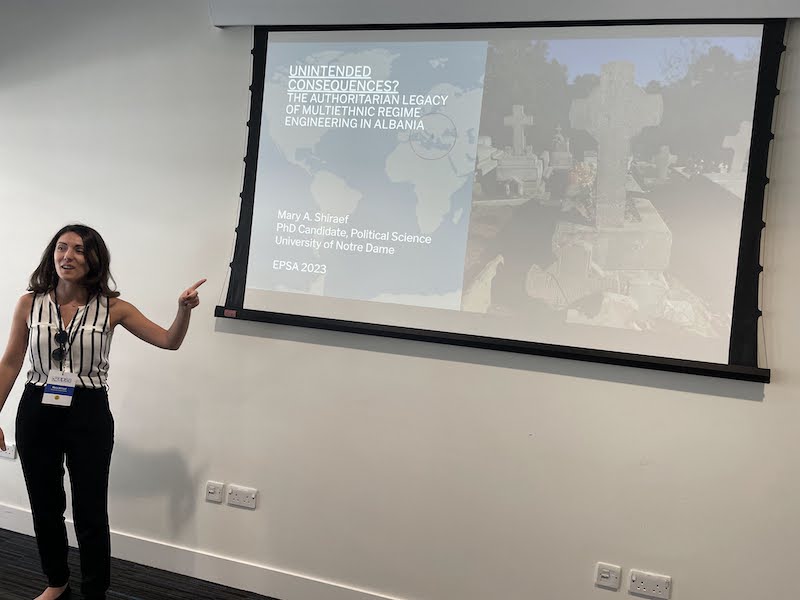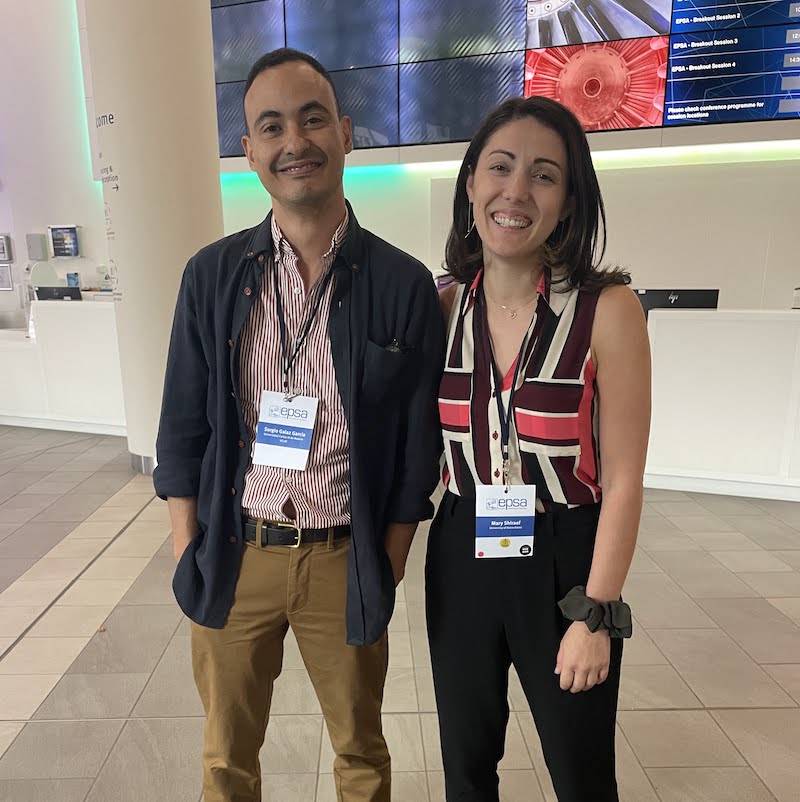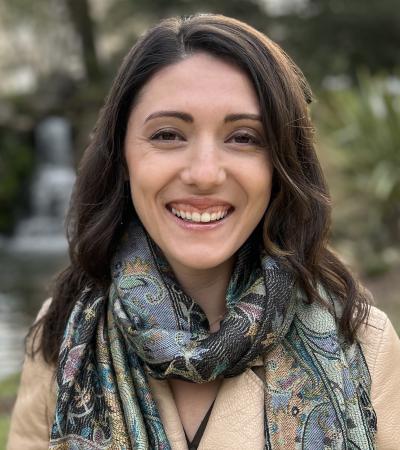Annual Conference of the European Political Science Association (EPSA); Glasgow, Scotland
Kellogg Institute Conference Travel Grants
Conference: Annual Conference of the European Political Science Association (EPSA); Glasgow, Scotland, United Kingdom
June 22 – June 24, 2023
Presentation: “Comeback Identities?: Multiethnic Regime Engineers and their Long-term Effects in Post-authoritarian Settings”
Report:


The most significant result from EPSA was the feedback I received on my dissertation’s main methodological design. It was a rare opportunity to hear from scholars who knew an extraordinary amount about my case in Albania and Greece and about causal inference designs, which I use in my dissertation. A prominent scholar in my field, Elias Dinas, attended my presentation and his Ph.D. student, Alsena Kokalari, from Albania presented on my panel. They, as well as my paper’s discussant, suggested a geographic regression discontinuity design using two groups for a paper instead of a difference-in-differences design using three groups. The Albanian researcher weighed in with specific Greek villages to focus on based on her knowledge of varying levels of politicization in Albania. I decided to apply the advice partly because it will save me time. The suggestion coincided with some advice from Scott Mainwaring recently to write an article using the data I already have. Hearing affirmation of the comparative design from scholars with case knowledge further affirmed this choice.
Second, I received important information related to my dissertation’s data inquiries. Alsena introduced me to a scholar, Karmen Misiou, who has accessed data in my regions of interest in Greece. I met with her and learned critical information regarding the state of the data I was planning to gather during my upcoming Fulbright-Hays. She is also based in the same city I’ll be in, so I will have a local researcher to show me the ropes when I begin that work in September.
Third, at EPSA, I experienced several career-related developments. For instance, I completed a follow-up, in-person interview for a postdoc opportunity for which I was shortlisted earlier in the summer. I did not receive an offer for the position in the end, but I did receive an offer for a part-time collaboration with their project, which would result in a coauthored paper. Even though I am unlikely to pursue that opportunity, it was great job market practice and a positive, encouraging experience. It was invaluable to meet the leader of that team in person rather than only through Zoom.
Furthermore, I learned about two additional positions that better fit my interests. Attending allowed me to introduce myself to the scholars on the hiring committees. I also learned about other annual conferences held in Europe, such as the Council for European Studies – to attend in the future.
After returning home, I received a personal invitation to apply for a British Academy Postdoctoral Fellowship from a scholar to whom I had provided feedback on his EPSA presentation. (I actually thought it was a graduate student when I gave my suggestion!) I am shortlisted for that role. Finally, regarding my most sought-after position, an Assistant Professor position at the University of Turin in Italy, I was told informally today by a scholar I met with at EPSA that he believes my chances are good. I can’t be sure, but I believe attending EPSA was a critical reminder for the faculty there that I am proceeding with my work and am very interested in working with them.






